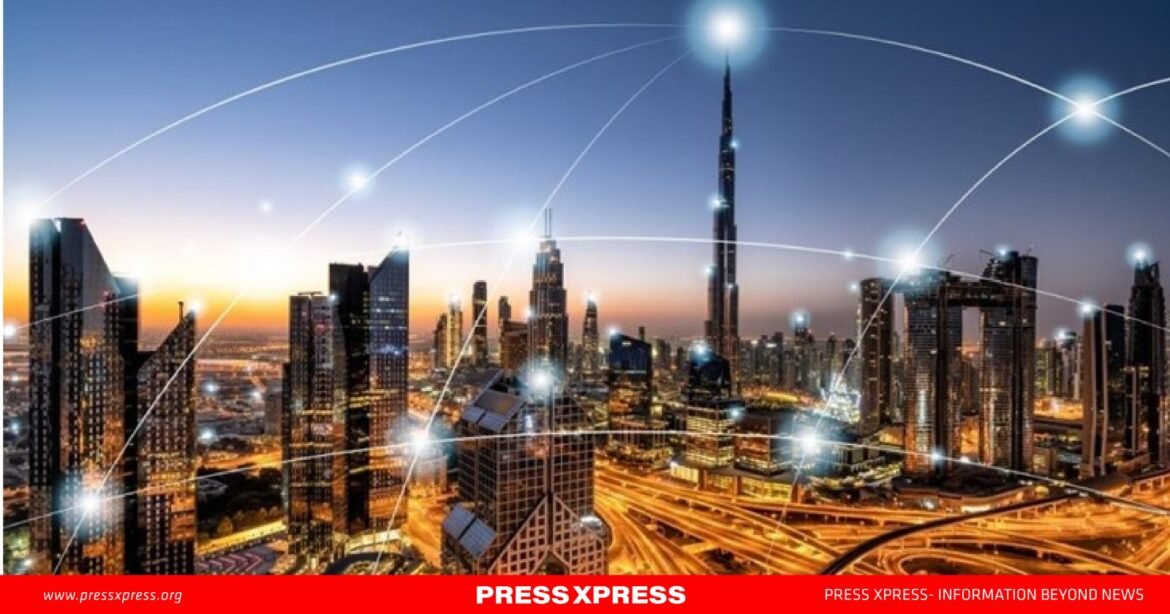The United Arab Emirates (UAE) is setting a global benchmark in smart city development, leveraging advanced technologies and effective governance to construct sustainable, efficient, and innovative urban landscapes.
According to the IMD Smart City Index 2024, Dubai and Abu Dhabi have both secured top positions, with Abu Dhabi at 10th and Dubai at 12th, making them the only Middle Eastern cities in the Top 20.
UAE Leadership and Vision for Smart Cities
The UAE’s smart city vision is propelled by its top leadership, with the UAE Prime Minister, HH Sheikh Mohammed bin Rashid Al Maktoum, advocating for technology and innovation as key elements of national progress. The ‘UAE Centennial 2071’ initiative aims to position the UAE as the “best country in the world” by 2071 through advancements in technology and governance. Central to this vision is the shift from an oil-dependent economy towards a diversified, tech-driven one. By investing in cutting-edge technologies and building interconnected, sustainable cities, the UAE is preparing for a resilient post-oil future.
Governance Frameworks Catalyzing Smart City Growth
The UAE government has established comprehensive frameworks to bring its smart city ambitions to life. The ‘Smart Dubai’ initiative, launched in 2014, aims to make Dubai the world’s smartest and happiest city by focusing on six pillars: smart living, smart mobility, smart economy, smart governance, smart environment, and smart people.

This initiative has catalyzed similar efforts across the nation, driven by federal strategies like the UAE AI Strategy 2031 and the Emirates Blockchain Strategy 2021. Key regulatory bodies, such as the Telecommunications and Digital Government Regulatory Authority (TDRA), oversee the implementation and security of smart technologies.
Technological Innovation as the Foundation of UAE’s Smart Cities
The UAE is a global leader in deploying transformative technologies that enhance urban living. Dubai, in particular, is pioneering numerous smart city technologies:
- Dubai Autonomous Transportation Strategy: Aims to make 25% of transportation driverless by 2030, incorporating autonomous air and ground taxis.
- Hyperloop Transportation: Currently under testing, this technology could connect Dubai and Abu Dhabi in just 12 minutes, traveling at speeds up to 1,080 km/hr.
- Healthcare Innovations: The Dubai Health Authority leverages AI and blockchain to secure health data and improve care quality.
- Biometric Wearables: Visitors to Dubai can access paperless travel and cashless payments through these devices.
- Smart Infrastructure: Dubai’s smart street lights, waste management systems, and traffic monitoring improve efficiency, while solar-powered pods offer sustainable last-mile transportation.
- Public Safety: Dubai Police employ AI and robotics for crime prevention, traffic management, and emergency responses.
By collaborating with global tech leaders, the UAE is creating smart cities where sustainability and human-centric services intersect.
Enhancing Quality of Life through Smart Cities
While the UAE’s smart city initiatives are driven by technology, they are fundamentally focused on improving the well-being of residents. Efforts in this regard include:
- Connected Services: Seamless government services are available through smart apps and portals.
- Public Safety: Smart surveillance and emergency response systems enhance safety and reduce traffic incidents.
- Inclusivity: Smart cities in the UAE provide accessible transportation and services for individuals with disabilities.
- Environmental Sustainability: Initiatives such as smart meters, electric vehicles, and green buildings reduce carbon footprints.
- Health and Well-being: Programs incentivize physical activity, while advanced healthcare technology ensures a healthy population.
- Skill Development: The UAE fosters digital skills through educational programs and career development initiatives.
Abu Dhabi’s Sustainable Cities
Abu Dhabi’s smart city projects are integral to its Economic Vision 2030, transitioning from a resource-based to a knowledge-driven economy. Key developments include:
- Masdar City: Established in 2006, Masdar City is one of the Middle East’s first sustainable cities. With its green footprint, the city uses solar panels and innovative designs to reduce energy consumption and enhance living conditions.
- Zayed Smart City: Launched in 2018, this project uses the Internet of Things (IoT) to manage urban infrastructure, aiming to establish a world-class environment integrated with AI technologies.
Dubai’s Digital and Sustainable Vision
Dubai’s Digital Strategy, launched in 2013, aims to digitize life and establish a robust digital economy. The city’s approach includes:
- Dubai Sustainable City: Recognized as one of the Gulf’s ‘Happiest Communities,’ this project emphasizes economic, environmental, and social sustainability. Solar energy powers homes, and waste management and water recycling systems support its green initiatives.
- Dubai Silicon Oasis: This project aligns with Dubai’s Clean Energy Strategy 2050, achieving over 31% energy reduction by 2016 and supporting sustainable urban growth.
- Dubai South: Close to the expanding Al Maktoum International Airport, Dubai South offers high-tech solutions in residential areas, fostering a vibrant community integrated with advanced services.
- Desert Rose City: Located in Al Ruwayah, Desert Rose City focuses on reducing temperatures and pollution. It aims to house 160,000 residents using renewable energy and green technology.
The Road Ahead: Global Implications and Future Prospects
As the UAE continues to integrate advanced technologies such as blockchain, augmented reality, and 6G into its urban planning, its smart city model offers valuable insights for other nations. The UAE’s progress underscores the importance of international collaboration and knowledge-sharing in tackling shared urban challenges.
Conclusion
The UAE’s commitment to smart cities has positioned it as a leader in urban innovation. Through the convergence of IoT, AI, and sustainable practices, the nation is developing connected, intelligent, and sustainable environments. Architectural advancements in cities like Abu Dhabi and Dubai showcase a unique blend of design and technology, offering a blueprint for future urban development.


